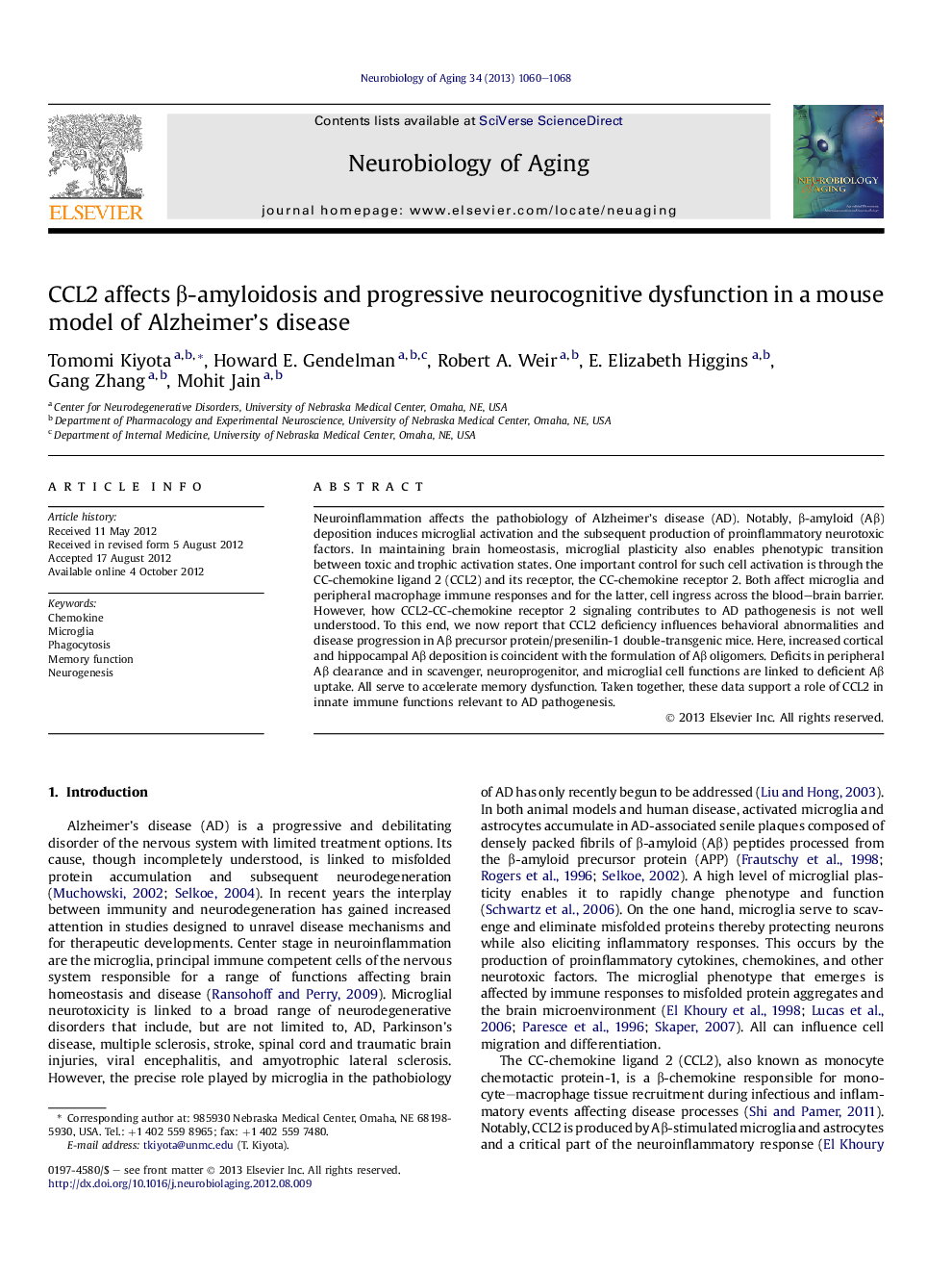| کد مقاله | کد نشریه | سال انتشار | مقاله انگلیسی | نسخه تمام متن |
|---|---|---|---|---|
| 6807511 | 1433584 | 2013 | 9 صفحه PDF | دانلود رایگان |
عنوان انگلیسی مقاله ISI
CCL2 affects β-amyloidosis and progressive neurocognitive dysfunction in a mouse model of Alzheimer's disease
دانلود مقاله + سفارش ترجمه
دانلود مقاله ISI انگلیسی
رایگان برای ایرانیان
کلمات کلیدی
موضوعات مرتبط
علوم زیستی و بیوفناوری
بیوشیمی، ژنتیک و زیست شناسی مولکولی
سالمندی
پیش نمایش صفحه اول مقاله

چکیده انگلیسی
Neuroinflammation affects the pathobiology of Alzheimer's disease (AD). Notably, β-amyloid (Aβ) deposition induces microglial activation and the subsequent production of proinflammatory neurotoxic factors. In maintaining brain homeostasis, microglial plasticity also enables phenotypic transition between toxic and trophic activation states. One important control for such cell activation is through the CC-chemokine ligand 2 (CCL2) and its receptor, the CC-chemokine receptor 2. Both affect microglia and peripheral macrophage immune responses and for the latter, cell ingress across the blood-brain barrier. However, how CCL2-CC-chemokine receptor 2 signaling contributes to AD pathogenesis is not well understood. To this end, we now report that CCL2 deficiency influences behavioral abnormalities and disease progression in Aβ precursor protein/presenilin-1 double-transgenic mice. Here, increased cortical and hippocampal Aβ deposition is coincident with the formulation of Aβ oligomers. Deficits in peripheral Aβ clearance and in scavenger, neuroprogenitor, and microglial cell functions are linked to deficient Aβ uptake. All serve to accelerate memory dysfunction. Taken together, these data support a role of CCL2 in innate immune functions relevant to AD pathogenesis.
ناشر
Database: Elsevier - ScienceDirect (ساینس دایرکت)
Journal: Neurobiology of Aging - Volume 34, Issue 4, April 2013, Pages 1060-1068
Journal: Neurobiology of Aging - Volume 34, Issue 4, April 2013, Pages 1060-1068
نویسندگان
Tomomi Kiyota, Howard E. Gendelman, Robert A. Weir, E. Elizabeth Higgins, Gang Zhang, Mohit Jain,